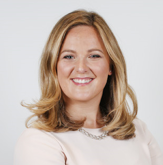When the route to sustainability gets twisty, tech provides vital road signs
September 21, 2021 | By Malin Berge
Four years ago, Sweden pledged to become the first fossil fuel-free nation by 2045. As part of its journey, the Nordic country is promoting a “circular economy” – producing, selling and consuming products in a way that wastes as few natural resources as possible. Isabella Lövin, Sweden’s former minister for environment and climate, has called it “madness” that valuable material is used just once and then thrown away. She vowed: “We’re going to change this now.”
Leading the charge is Sweden’s private sector. Since 2018, fast-fashion retailer H&M collects old textiles to either sell as secondhand items, reuse in new products, or recycle for new uses such as insulation. Similarly, IKEA is reconfiguring its entire business to produces zero waste by the end of the decade. And sustainable startups in Sweden have attracted over €5 billion in new investments to the region.
It’s time for other companies to catch up to Sweden. The United Nations warned on Friday that even if all countries meet their existing emissions pledges, the global average temperature is likely to rise 2.7 degrees Celsius by the end of 21st century, which would be “catastrophic,” unleashing even more extreme weather events and threatening the livability of coastal cities and already hot regions of the world. And consumers are begging for change too. In a recent Ipsos Earth Day survey, 68% agreed that if businesses do not act now, they will be failing their employees and customers.
While about 85% of adults globally want to live a more sustainable lifestyle, there is a gap between aspiration and actual behavior. Only when companies and consumers understand the impact of their real-world behavior can they figure out how to close that gap. And they can.
In recent years, Mastercard has been exploring just how technology and data can make this happen. In 2018, the company formed a strategic partnership with fintech startup Doconomy (based in, you guessed it, Sweden) and earlier this year launched the Mastercard Carbon Calculator globally, a digital tool that offers consumers a snapshot of the carbon emissions generated by their purchases so they can be more mindful about their spending – or even easily contribute to forest restoration projects spearheaded by the Priceless Planet Coalition, which aims to plant 100 million trees by 2025.
Doconomy is also working directly with brands with their 2030 carbon calculator, to provide them with free and transparent way to calculate their products’ carbon footprint.

Similarly, Mastercard Provenance Solution uses blockchain to enable clear and transparent tracing of what happens along any supply chain. By scanning a QR code on their phone, shoppers can discover what kind of farm grew their avocados, where they were picked, and how far they travelled. As a result, consumers increase their purchasing control, brands get rewarded for behaving responsibly and, more importantly, we all gain sharper insight into what a sustainable economy looks like.
This is why Mastercard will delve deeper into data’s possibility by launching its new global Sustainability Innovation Lab. Located in Stockholm, the Lab will provide an R&D facility to build on these solutions and invent new tools that let consumers combat climate change through their daily habits. It will also work closely with partners and customers to determine how they can adapt sustainable business models, as well as provide hands-on experiences to showcase how some of these solutions would work.
With the introduction of more technological advancements, the Lab expects to learn even more. For instance, emerging 5G network will eventually allow tracking supply chain data at a more granular level and much more efficient.
Yet perhaps the Lab’s most important role is to keep asking questions. If business leaders already understood how to operate a sustainable circular economy, the planet would not be in this mess. Those leaders need to know what strategies work, what behaviors resonate with consumers and what changes make the most impact. Those answers lie in data we can trust.
And while data may sound like a cold way to calculate the future of the planet, people need to understand their own impact on the earth, and whether to support the businesses working to lessen their own. These insights, delivered through collective action, can help perpetuate a virtuous circle in which one well-informed decision can lead to another, and another, accelerating sustainability for everyone.
The tools are here, and increasingly, so is the energy to attack this crisis. What we need to find is the state of equilibrium, where we can fulfill the needs of the people on this planet — but not at the expense of it.
